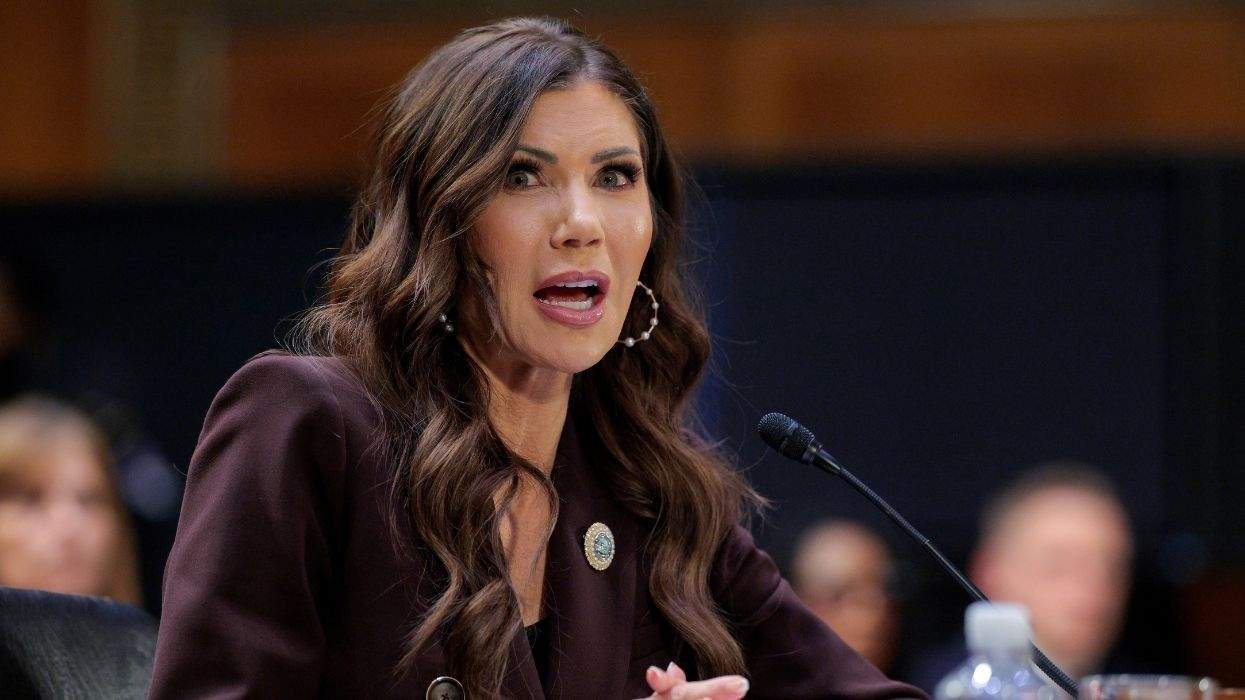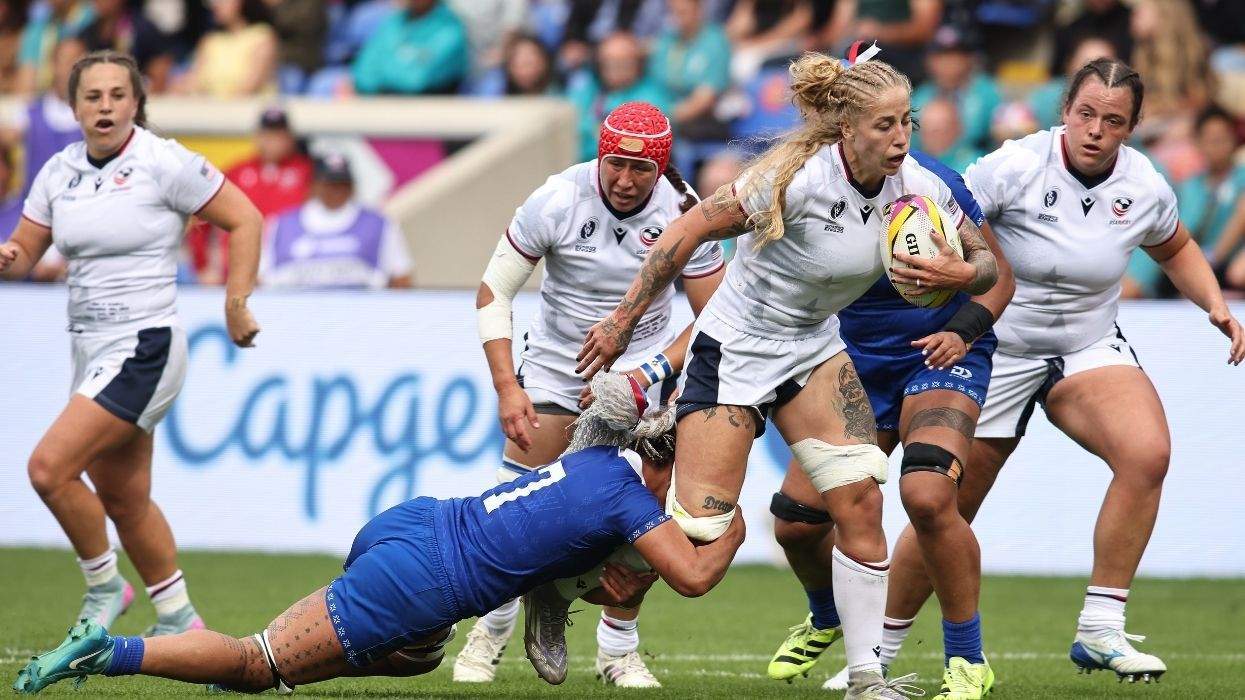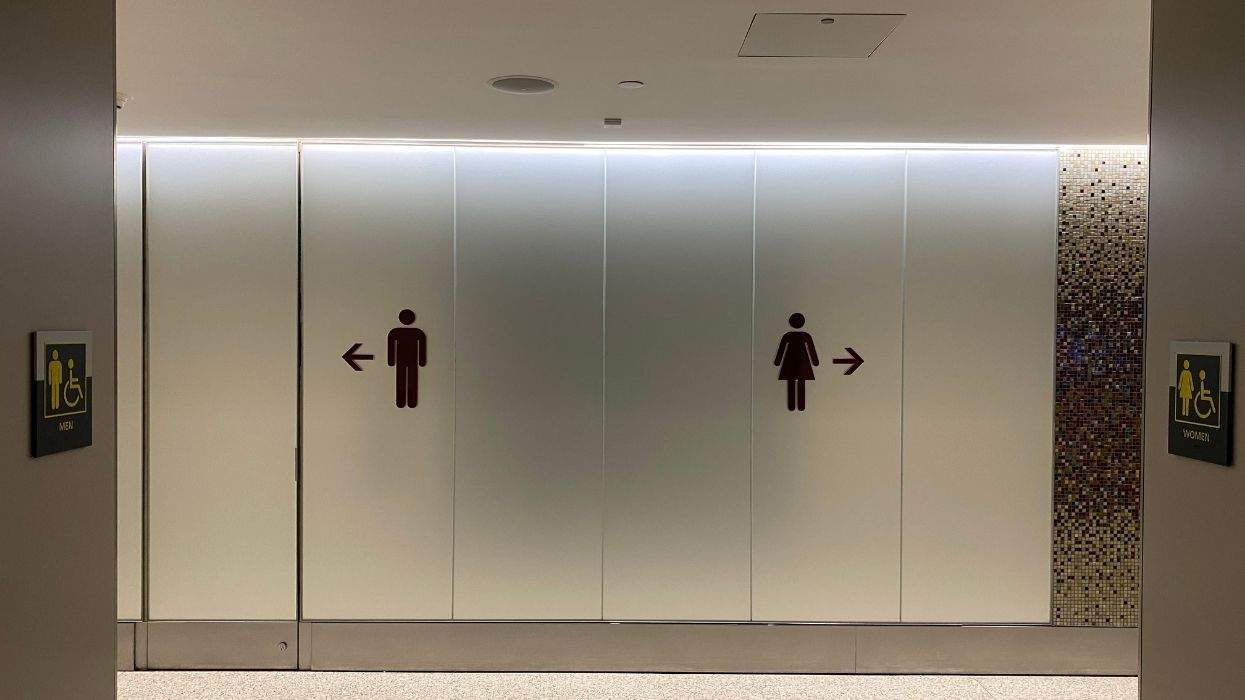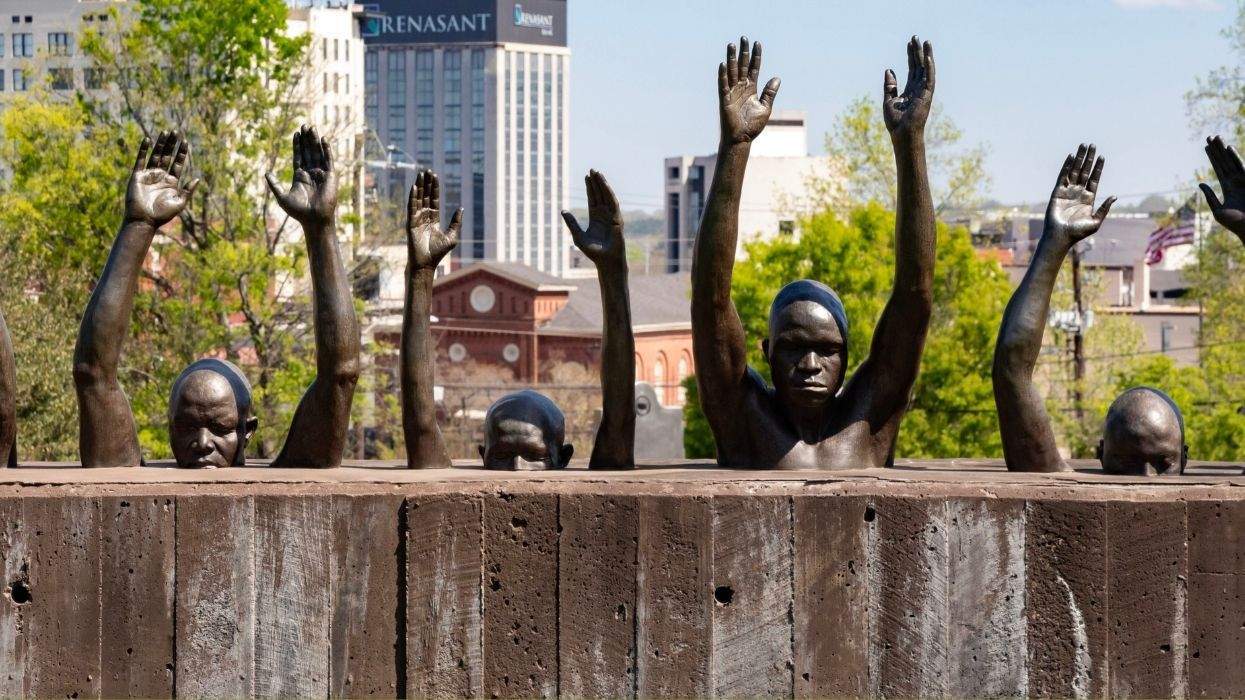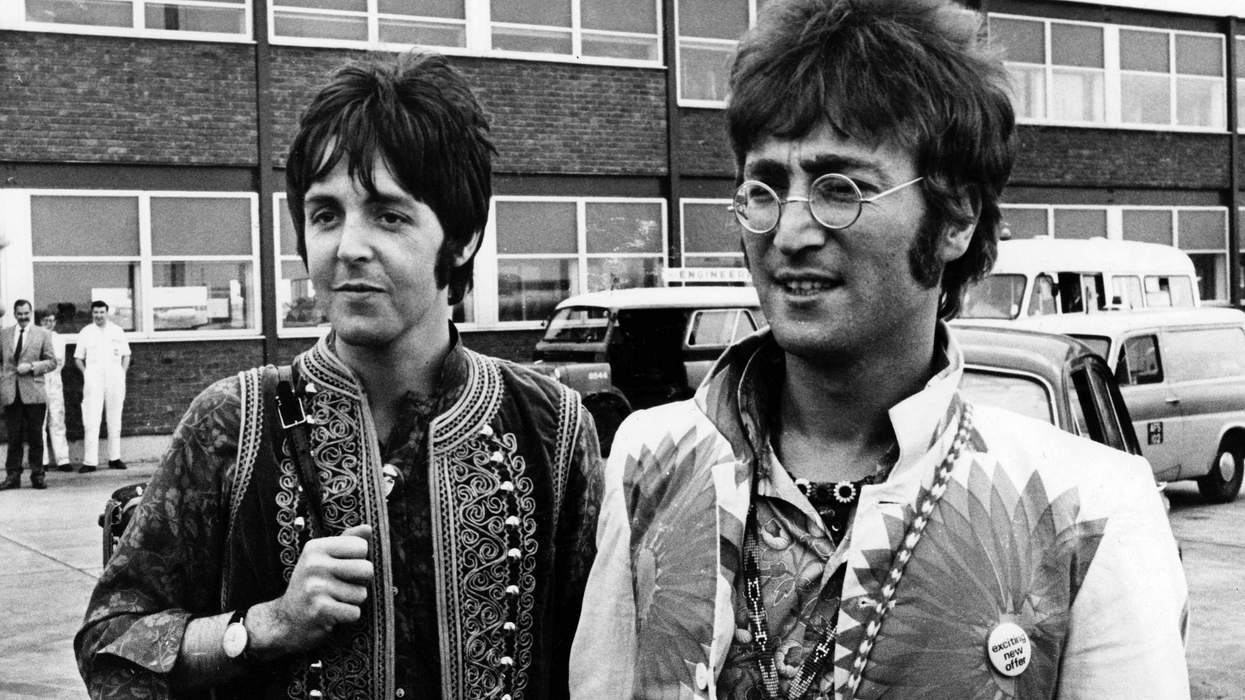Let's begin with a stipulation: It's difficult to write about one's personal spending without seeming like a snob or a communist, a sybarite or a Spartan. Some of the things I give money for will surely seem silly or extravagant to you, and some of the things I go without may seem like necessities in your household. But the highly idiosyncratic nature of consumption raises a cultural question: Is there a particularly gay way of spending?
Ambrose Bierce called money "an evidence of culture." He was kidding, sort of -- joking, as he often did, about the airs of the rich and cultured. (He also called money "a passport to polite society.") But at some basic level, money is surely evidence of culture, in the sense that the items we value enough to purchase help define who we are. So if we can agree that there is a gay culture, there should be testimony to it in our spending habits. Just look at the ads in this magazine. They lead to another question: With the economy the way it is, can any of us afford to be gay?
This question presented itself to me in stark terms this past summer as I sat on the Fire Island Pines beach scrubbing my jeans with sand. A few weeks earlier, having watched my mutual-fund gains shrink from the merely mediocre to the almost theoretical, I had resolved to cut back. And so when I needed new jeans, I foreswore $300-plus designer denim in favor of a $145 pair from the French basics store A.P.C. The store puts a little label on its untreated-denim jeans saying that if you soak them in salt water and then rub them with sand, they will break in easily and develop those striations and wear marks that high-end designers charge the extra money for.
That's why I was abusing my jeans with beach sand and drawing strange glances: I wanted a designer look at a more affordable price. Whether that makes me a fussy, stereotypical f****t is another question, one I hope to address in this story.
Another stipulation, an obvious but important one: $145 is still an outrageous sum for jeans. (And actually, according to A.P.C.'s website, the store now charges $155 for the same pair.) But not long ago, at the New York City outpost of Universal Gear (a chain store with locations in the gay sections of four cities), I found Dolce & Gabbana jeans for $274.95 -- on sale, down from $345. Under the cold glare of D&G, $145 seems like a bargain. And this particular gay man is not going to the Gap to buy its saggy-assed jeans, even if they are only $55, and even if I do live on a reporter's salary, and even if that does mean I eat leftovers most nights and have traded down from Junipero gin ($35 per bottle) to Tanqueray ($20 per bottle). Call me a queen, but Gap jeans don't fit me, in at least two senses: They don't fit my body, and, I would argue, they don't fit my culture.
My first phone call for this story was to Lee Badgett, the brilliant economist with the Williams Institute, an LGBT public policy think tank at the University of California, Los Angeles. Badgett has been researching gay people and poverty, and is so polite that she suppressed a groan when I told her the reason for my call, but I understood her objections: This story could confirm a stereotype of gays as more privileged than straights. It could make us seem frivolous, and it would continue to ignore the least advantaged in our community.
But then I asked Badgett to send me her preliminary data on gays and poverty. She did so -- the data appear in this story for the first time -- and the numbers show a complicated picture, which does reveal some financial advantage in being a gay man. According to census figures, gay and lesbian couples experience poverty at about the same rate as straight couples of the same race, age, and education level. But when you look at all gay men -- including singles -- they are half as likely to be living in poverty as straight men, according to numbers Badgett compiled from a 2002 survey by the National Center for Health Statistics. That survey showed that 2.1% of gay and bisexual men ages 18-44 live in poverty, compared with 4.2% of straight men in the same age group. (Straight women and lesbian/bisexual women in that age group had no statistically significant difference in poverty rates -- for each cohort, the rate was about 6%.)
These data may mean only that gay men under 45 who live in poverty are less likely than others to reveal themselves in a survey. But could the data also mean something else? Have gay men created a culture in which poverty is less acceptable than it is for straight men? And do we work harder to avoid it because of those cultural expectations? To put it blithely, is $145 the least we can spend on jeans, because otherwise the jeans wouldn't be gay enough?
And since we're asking difficult questions, how about this one: Why would the rates of poverty among lesbians and straight women be statistically indistinguishable? One plausible answer: Sexism is a more powerful force than homophobia. Badgett agrees: "I would say in terms of defining people's economic existence, sex is definitely more powerful than sexual orientation," she says, pointing out that in general, men earn more than women -- and gay men earn more than lesbians.
Badgett also raised the possibility that in an economy as weak as America's in late 2008, gay people might undergo discrimination at higher rates as bosses fire employees and pick among a larger applicant pool for new workers. Data from the latest Out & Equal Workplace Advocates survey -- again, presented in this story for the first time -- offer reasons to substantiate her concern. San Francisco-based Out & Equal partners with Harris Interactive and Witeck-Combs Communications every year to survey American employees on their attitudes toward LGBT coworkers. The group's latest survey contains mostly good news: 79% of heterosexuals agree that gay people shouldn't be judged by their sexual orientation. Only 22% say they think they would feel uncomfortable working for a boss who is lesbian, gay, bisexual, or transgender. But here's the worrisome part: In 2005, when the U.S. economy was vibrant (gross domestic product grew 2.9% that year), 62% of heterosexuals favored written nondiscrimination policies at their companies. In the first two quarters of this year, GDP grew only 2.1% (after shrinking 0.2% in the last quarter of 2007), and now only 46% of heterosexuals favor written antibias policies. Apparently equality seems more affordable when everyone is richer.
What does this mean for gay spending? So far, nothing. Witeck-Combs, which compiles the most accurate market research on LGBT people, released a survey in June showing that gay men and lesbians were more likely than straight people to be taking a vacation involving air travel this year, even though everyone, gay and straight, felt uneasy about doing so. Some 17% of gay people were "absolutely certain" they would take a vacation by air in the next six months, compared to just 12% of heterosexuals. Only 49% of gays and lesbians were "not at all likely" to take a vacation by air, as opposed to 55% of straight people.
And gay people are still worse at long-term financial planning than heterosexuals: A July survey by Witeck-Combs found that only 47% of LGBT people have retirement accounts, compared to 51% of heterosexuals. Don't we know we will get old?
Maybe not. Charlie Rounds, president of RSVP Vacations, says that cruise sales haven't slowed this year. Similarly, Mitchell Gold, who along with Bob Williams founded the North Carolina-based furniture company that bears their names, says that even though "every person I know is feeling this economy," his company has been doing fine, partly because of the increasing number of gay couples with children who are spending more to furnish their homes. And finally, Chuck Wolfe, who runs the LGBT political action committee the Gay and Lesbian Victory Fund, told me that while some donors "have said they want to be more judicious and spread contributions out over more time, I can't say there has been any wholesale retreat from support this year because of the economy."
You might expect gay people to cut back their spending, but it appears we aren't doing so, at least so far. Why? It may be literally harder for gay men and lesbians to spend less than it is for straight people, according to Yeshiva University psychology professor John Pachankis.
According to Pachankis, because of social stigma, gay people often feel they must work very hard to manage others' impressions of them. We monitor our behavior more than those who don't face stigma; gays and lesbians often carefully calibrate their social interactions so as not to seem weak. Expending that self-regulatory effort makes it harder, in turn, to exert self-control in other aspects of life, like spending. That's why we just can't say no to a gay cruise or a gorgeous new Mitchell Gold + Bob Williams chair.
Psychologists have tested this theory in several ways. In one experiment, published in the Journal of Personality and Social Psychology in 2005, black students who believed they were the only member of their racial group in a room were asked to speak about racial politics. The stressor of being a token representative made it harder for those students to exert self-control and persistence when they were later asked to complete a test. By contrast, black students who were asked to speak about the environment instead of race didn't suffer any loss of self-control. How is this tied to consumption? A 2007 paper from the Journal of Consumer Research explains: "If a person is temporarily robbed of self-regulatory resources, their valuation of goods is higher and hence the point at which a product becomes prohibitively expensive is also higher."
Still, maybe this is all a little too convenient. I live in Chelsea; I am out at work; I am out to everyone in my family, all my friends. I don't think I have to cope with much stigma. And yet not long ago I bought two shirts I didn't really need, along with a $22 pair of underwear. Twenty-two dollars for underwear? My reserves of self-control had definitely been depleted that day. Or maybe I just wouldn't feel like myself--a gay man, usually proud, sometimes uncertain, occasionally shallow -- if I wore Hanes.

